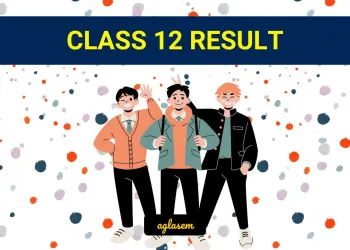Class 12 Business Studies Staffing – Get here the Notes for Class 12 Business Studies Staffing. Candidates who are ambitious to qualify the Class 12 with good score can check this article for Notes. This is possible only when you have the best CBSE Class 12 Business Studies study material and a smart preparation plan. To assist you with that, we are here with notes. Hope these notes will helps you understand the important topics and remember the key points for exam point of view. Below we provided the Notes of Class 12 Business Studies for topic Staffing.
- Class: 12th
- Subject: Business Studies
- Topic: Staffing
- Resource: Notes
CBSE Notes Class 12 Business Studies Staffing
Candidates who are pursuing in Class 12 are advised to revise the notes from this post. With the help of Notes, candidates can plan their Strategy for particular weaker section of the subject and study hard. So, go ahead and check the Important Notes for Class 12 Business Studies Staffing
Points to Remember
1. Staffing It consists of manpower planning, recruitment, selection, training, compensation. promotion and maintenance of managerial personnel.
According to Dale Yoder, “Staffing is that phase of the management which deals with the effective control and use of manpower or human resources.”
2. Importance of Staffing
- Filling the roles by obtaining competent personal
- Placing right person at the right job
- Growth of enterprise
- Optimum utilisation of human resources
- Helps in competing
- Improves job satisfaction and morale of employees
- Key to effectiveness of other functions
3. Staffing as Part of Human Resource Management When staffing function is carried on at a large scale, it becomes human resource management.
(i) Evaluation of HRM

4. Activities of Human Resource Management
- Human resource planning
- Recruitment, selection and placement
- Career growth
- Performance appraisal
- Motivation
- Compensation
- Social security
5. Staffing Process The steps involved in the staffing process are
- Estimating the manpower requirements
- Recruitment
- Selection
- Placement and orientation
- Training and development
- Performance appraisal
- Promotion and career planning
- Compensation
6. Recruitment It refers to the process of appointing possible candidates for a job or a function. It has been defined as the process of searching for prospective employees and stimulating them to apply for jobs in an organisation.
7. Sources of Recruitment There are two sources of recruitment
- Internal
- External
8. Internal Sources Under internal source of recruitment the vacant job positions are filled by inducing the existing employees of the organisation
(i) Advantages
(a) It is economical.
(b) It motivates the existing employees. ,
(c) Through transfer employees get draining also in the form of job position.
(ii) Drawbacks
(a) No fresher new ideas will come in the organisation.
(b) There will be limited choice.
(c) Not suitable for new organisation.
(d) Frequent transfer may reduce the productivity of employee.
(iii) Methods Under the internal recruitment following methods of recruitment are used
(a) Transfer
(b) Promotion
9. External Sources When the candidates from outside the organisation are invited to fill the vacant job position then it is known as external recruitment.
(i) Advantages
(a) Fresh talent
(b) Wider choice
(c) Qualified personnel
(d) Latest technological knowledge
(e) Competitive spirit
(ii) Drawbacks
(a) The morale of existing employees goes down.
(b) Lengthy process.
(c) The new employees may not adjust in the rules and regulation of the organisation.
(d) It is expensive.
(iii) Methods
The common methods of external sources of recruitment are
(a) Direct recruitment
(b) Casual callers
(c) Advertisement
(d) Employment exchange
(e) Placement agencies and management consultants
(f) Campus recruitment
(g) Recommendations of employees
(h) Labour contractors
(i) Advertising on television
(j) Web publishing
(k) Factory gate
10. Selection It can be defined as discovering most promising and most suitable candidate to fill up the vacant job position in the organisation.
11. Process of Selection
(i) Preliminary screening
(ii) Selection test
(a) Intelligence test
(b) Aptitude test
(c) Personality test
(d) Trade test
(e) Interest test
(iii) Employment interview
(iv) Reference and background cheeks
(v) Selection decision
(vi) Medical examination
(vii) Job offer
(viii) Contract of employment
12. Training and Development
(i) Training raining means equipping the employeos with the required skill to perform the job.
(ii) Development It refers to overall growth of the employee. It focuses on personal growth and successful employees development.
13. Benefits of Training for Organisations
- Reduced learning time
- Better performance
- Attitude formation
- Aids in or help in solving operational problems
- Managing manpower need
- Helps to adopt changes
14. Benefits of Training for Employees
- Better career options
- Earning more
- Boost up the morale
- Less chance of accidents
15. Difference Between Training and Development
| S.N. | Training | Development |
| 1 | It is process of increasing knowledge and skills. | It is a processof learning and growth |
| 2 | It is to enable the employee to do the job better. | It is to enable the overall growth of the employees. |
| 3 | It is a job oriented process. | It is a career oriented process. |
16. Training Methods
(i) On the Job Methods
(a) Apprenticeship programmes
(b) Coaching
(c) Internship training
(d) Job rotation
(ii) Off the Job Methods
(a) Classroom lectures
(b) Films
(c) Case study
(d) Computer modelling
(e) Vestibule training
(f) Programmed instruction
Class 12 Key Points, Important Questions & Practice Papers
Hope these notes helped you in your schools exam preparation. Candidates can also check out the Key Points, Important Questions & Practice Papers for various Subjects for Class 12 in both Hindi and English language form the link below.
Class 12 NCERT Solutions
Candidates who are studying in Class 12 can also check Class 12 NCERT Solutions from here. This will help the candidates to know the solutions for all subjects covered in Class 12th. Candidates can click on the subject wise link to get the same. Class 12 Chapter-wise, detailed solutions to the questions of the NCERT textbooks are provided with the objective of helping students compare their answers with the sample answers.
Class 12 Mock Test / Practice
Mock test are the practice test or you can say the blue print of the main exam. Before appearing in the main examination, candidates must try mock test as it helps the students learn from their mistakes. With the help of Class 12 Mock Test / Practice, candidates can also get an idea about the pattern and marking scheme of that examination. For the sake of the candidates we are providing Class 12 Mock Test / Practice links below.
Class 12 Exemplar Questions
Exemplar Questions Class 12 is a very important resource for students preparing for the Examination. Here we have provided Exemplar Problems Solutions along with NCERT Exemplar Problems Class 12. Question from very important topics is covered by Exemplar Questions for Class 12.
Class 12 Business Studies Notes Maths Notes Economics Notes Sociology Notes
To get study material, exam alerts and news, join our Whatsapp Channel.


